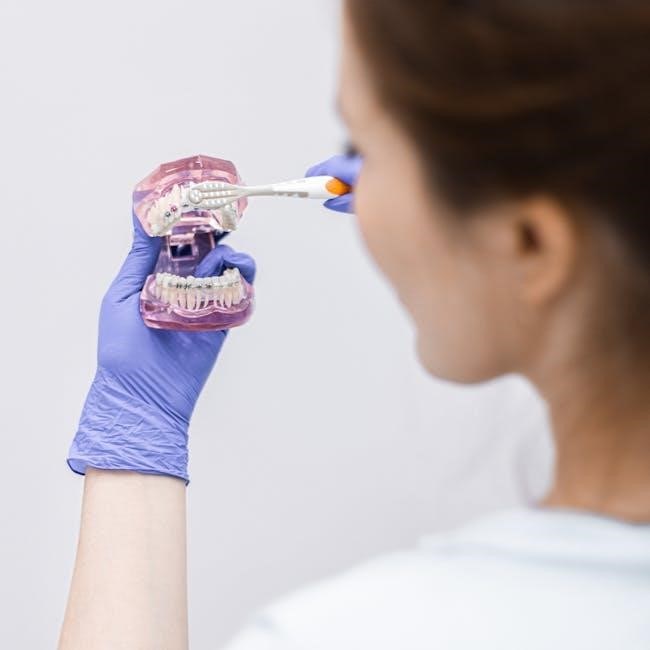Immediate Post-Surgical Care
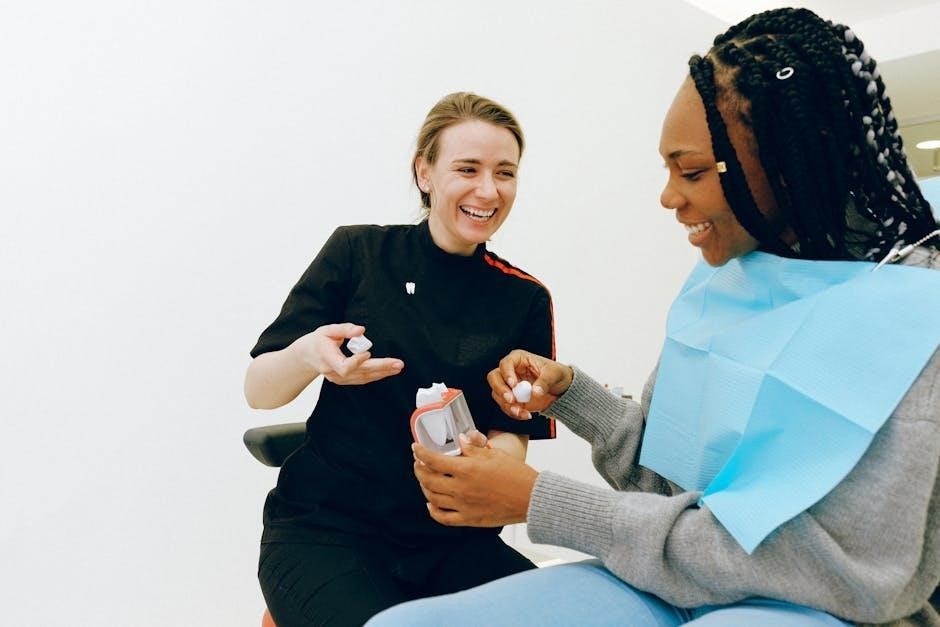
After dental implant surgery, monitor the surgical site closely. Apply gentle pressure with gauze or a moist tea bag for 10-15 minutes if bleeding occurs. Avoid rinsing, spitting, or disturbing the wound on the day of surgery. Keep the area undisturbed to promote healing and prevent complications. Apply an ice pack to reduce swelling. Rest and limit physical activity for the remainder of the day to ensure proper recovery.
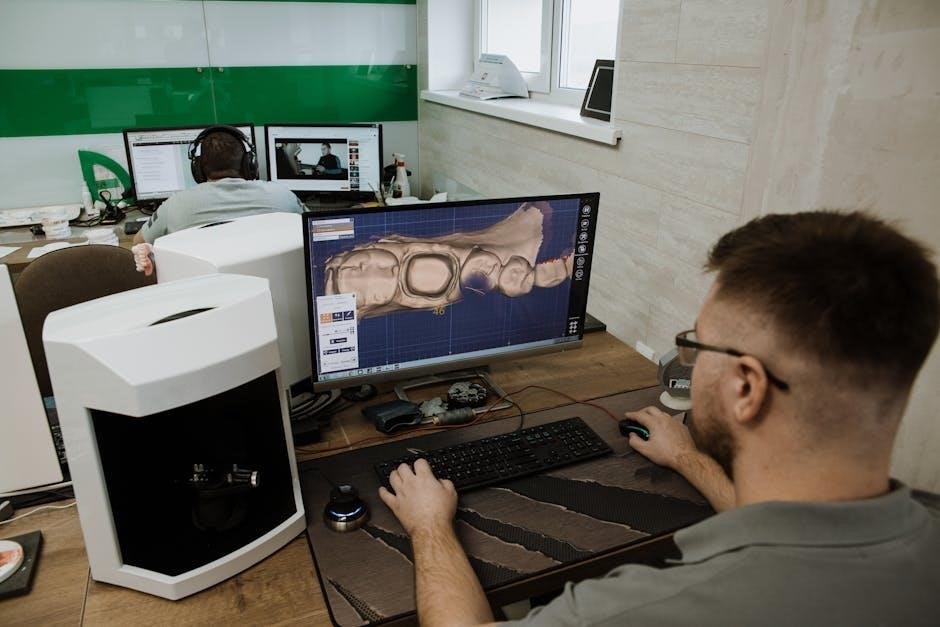
Managing Bleeding and Swelling
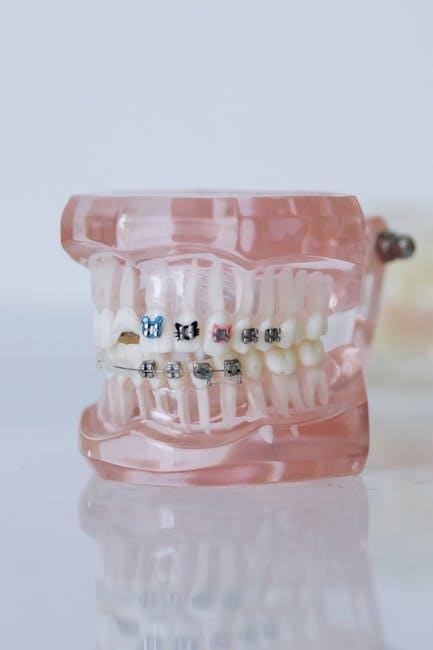
Minor bleeding or oozing is normal after dental implant surgery and typically subsides within a few hours. To control bleeding, bite firmly on the provided gauze for 30-60 minutes. If bleeding persists, a moist tea bag can be used. Avoid spitting, rinsing, or disturbing the wound on the day of surgery, as this may dislodge the blood clot and delay healing. Swelling is also common and may peak 24-48 hours post-surgery. Apply an ice pack to the affected area for 15-20 minutes at a time to reduce swelling and discomfort. Elevate your head while resting to minimize swelling. Starting the day after surgery, gentle rinsing with warm salt water (1/2 teaspoon of salt in 8 ounces of water) can aid healing. Contact your dentist if bleeding increases or swelling becomes severe, as this may indicate complications. Proper management of bleeding and swelling is crucial for a smooth recovery and optimal implant integration.
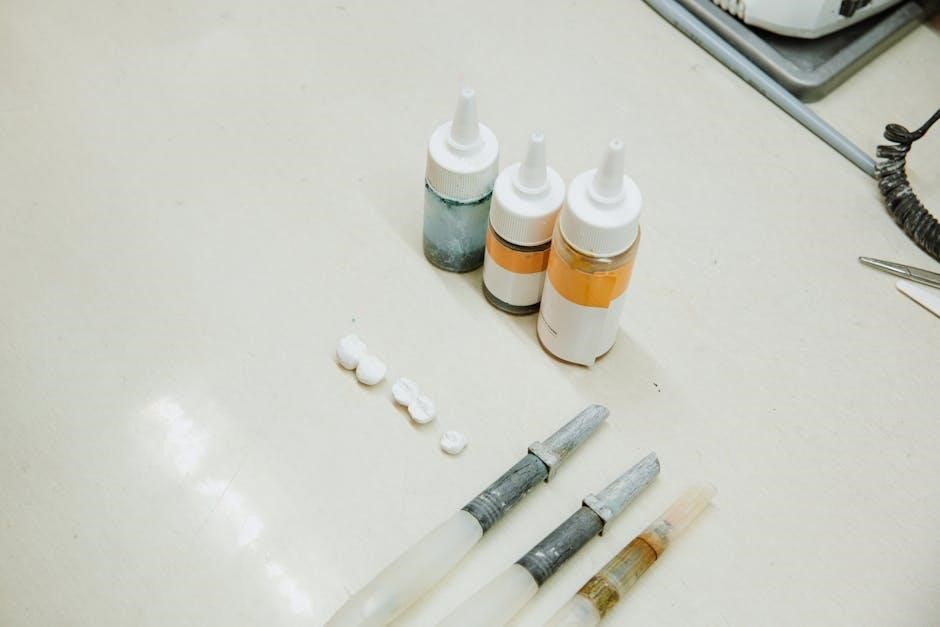
Pain Management and Discomfort
Discomfort after implant surgery is typically mild to moderate. Take prescribed pain medication as directed, starting before the anesthetic wears off. Over-the-counter pain relievers like ibuprofen can also be used if recommended by your dentist.
Prescribed Medications and Dosage Instructions
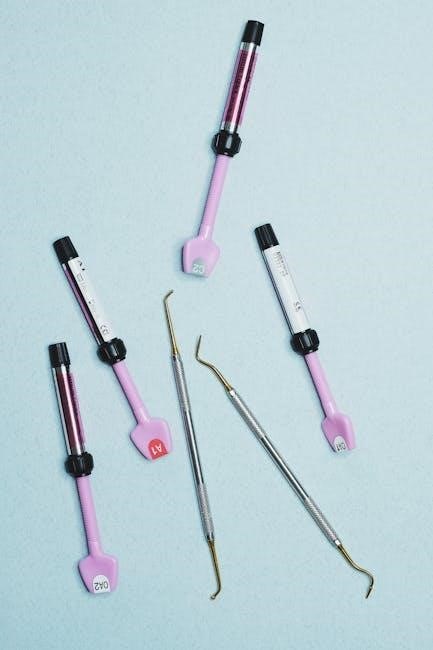
Take all prescribed medications as directed by your dentist to manage pain, inflammation, and prevent infection. Start pain relievers like Ibuprofen (400-600 mg every 6-8 hours) or prescribed narcotics before the anesthetic wears off. Antibiotics, such as Amoxicillin (500 mg three times daily), may be prescribed to prevent infection. Follow the dosage instructions carefully and complete the full course. Avoid exceeding recommended dosages of over-the-counter medications. If you experience severe side effects or allergic reactions, contact your dentist immediately. Do not mix medications with alcohol or drive while taking narcotics. Always prioritize your dentist’s instructions over general guidelines to ensure safe and effective recovery.
Dietary Recommendations
Stick to a soft food diet for the first few days, such as yogurt, smoothies, Jell-O, and pudding. Avoid hot, hard, or crunchy foods that could irritate the surgical site or delay healing.
Soft Food Diet and Nutritional Advice
Following dental implant surgery, it is crucial to adhere to a soft food diet to ensure proper healing and avoid discomfort. Opt for foods like yogurt, scrambled eggs, and mashed potatoes, which are gentle on the mouth. Avoid consuming anything hot, spicy, or acidic during the initial recovery phase. Incorporate nutrient-rich foods such as smoothies, soups, and pureed vegetables to maintain overall health. Protein sources like soft-cooked meats or fish can aid in tissue repair. It is also important to stay hydrated by drinking plenty of water and clear broths. Avoid using straws to prevent dislodging the blood clot at the surgical site. Gradually reintroduce firmer foods as healing progresses, typically after 3-5 days. Always prioritize foods that are easy to chew and swallow to minimize stress on the implant area.
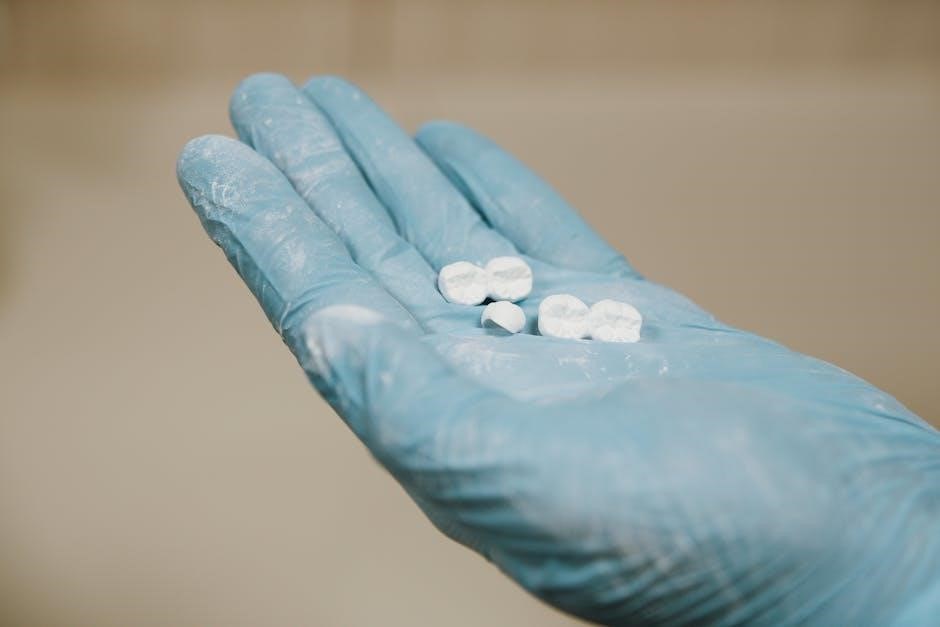
Oral Hygiene Practices
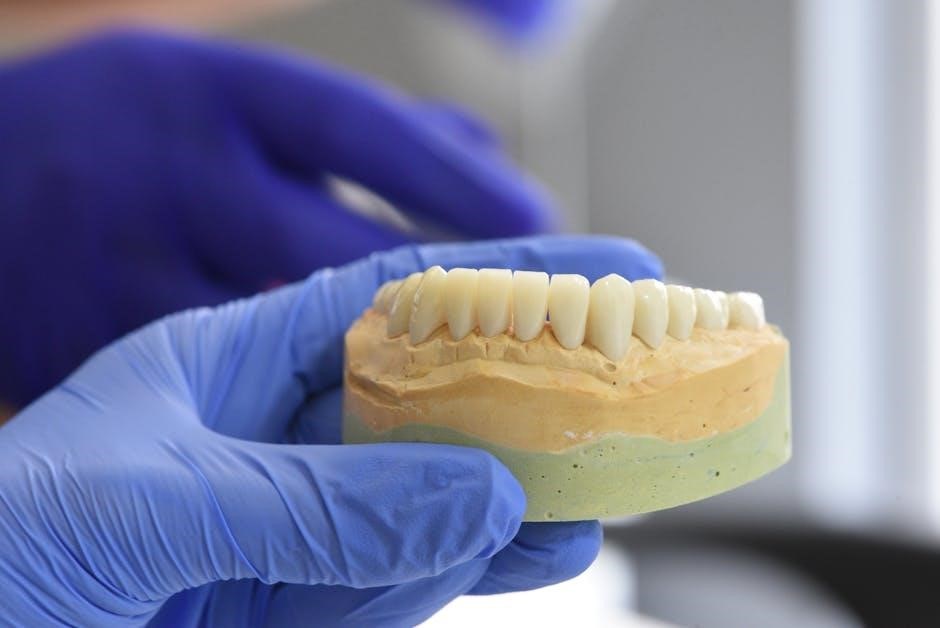
Gentle oral care is essential after implant surgery. Start with warm saltwater rinses the day after surgery, 4-5 times daily for 7 days. Use a soft toothbrush to clean surrounding areas without disturbing the surgical site. Avoid harsh mouthwashes and focus on maintaining a clean environment to promote healing. This routine helps prevent infection and supports the recovery process.
Gentle Rinsing and Cleaning Techniques
Begin gentle rinsing with warm saltwater (1/2 teaspoon of salt in 8 ounces of water) 24 hours after surgery, continuing 4-5 times daily for 7 days. Avoid vigorous swishing or spitting. Use a soft-bristle toothbrush to clean teeth, gently avoiding the implant site. Do not use harsh mouthwashes or abrasive toothpaste. For the first 2-3 days, avoid direct water pressure on the surgical area. After meals, rinse with lukewarm water to remove food particles. Maintain a clean environment to promote healing and prevent infection. As healing progresses, gradually resume normal oral hygiene practices, ensuring the implant site remains clean. Proper cleaning techniques minimize complications and support optimal recovery.
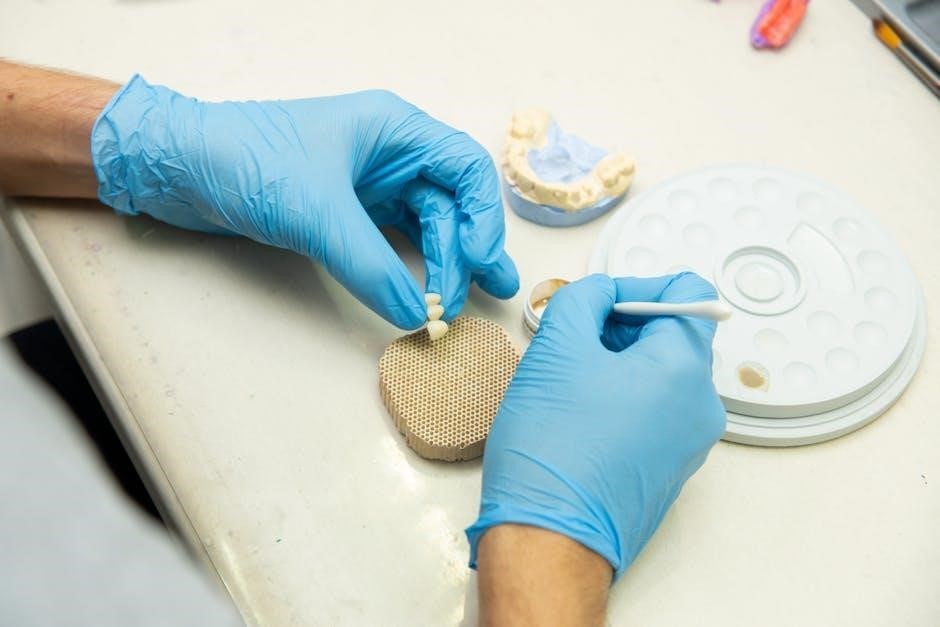
Activity Restrictions
Rest is crucial immediately after surgery. Avoid strenuous activities for 2-3 days. Resume light activities gradually to support healing and prevent complications. Avoid heavy lifting or straining during the initial recovery period.
Limiting Physical Activity and Avoiding Strenuous Exercises
Rest is essential after dental implant surgery to promote healing and minimize complications. For the first 24 hours, avoid any strenuous activities, heavy lifting, or bending. Overexertion can dislodge the implant or disrupt the healing process. After the initial day, light activities can gradually resume based on your comfort level. However, avoid vigorous exercise, such as running or weight lifting, for at least 2-3 days. Strenuous movements may cause swelling or discomfort to worsen. It’s important to listen to your body and not push yourself too hard. If you experience pain or difficulty while performing an activity, stop immediately and rest. Your dentist may provide specific guidance based on your individual recovery progress. By limiting physical activity, you ensure the implant integrates properly and reduce the risk of post-operative issues. Always prioritize rest and gentle movements during the early stages of healing to achieve the best outcomes.
Monitoring for Complications
Watch for signs of infection, such as fever, increased swelling, redness, or pus around the implant site. Contact your dentist immediately if you experience severe pain, numbness, or unusual discharge. Prompt attention prevents complications.
Signs of Infection and When to Contact Your Dentist
Monitor for signs of infection, such as fever, increased redness, swelling, or pus around the implant site. Severe pain, numbness, or a foul odor may also indicate complications. Contact your dentist immediately if these symptoms arise or worsen over time. Additionally, if the implant feels loose or unstable, seek professional attention promptly. Early detection of infection or implant failure is crucial for effective treatment and to ensure proper healing. Avoid delaying care, as complications can lead to more invasive procedures. Your dentist will assess the situation and provide appropriate interventions to resolve the issue and protect your oral health.
